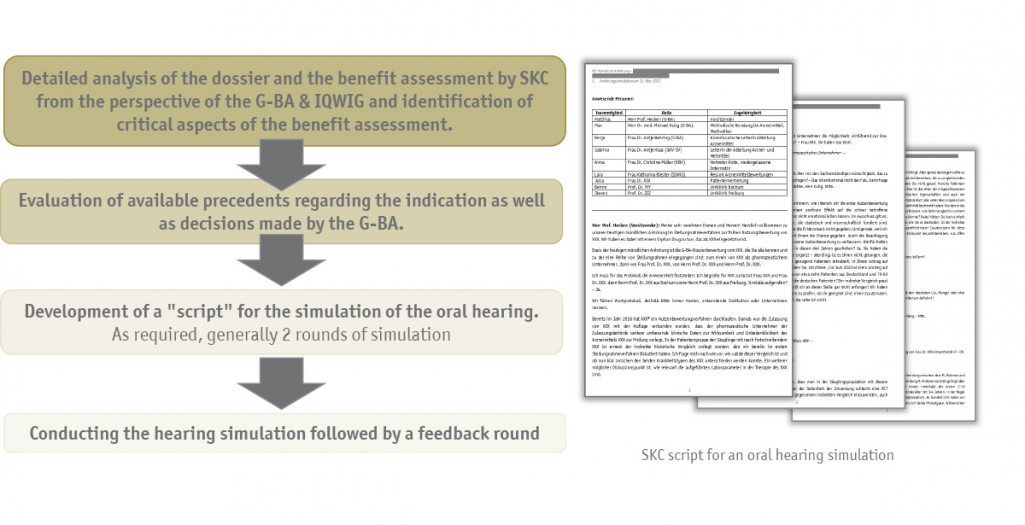Preparation for the oral hearing in a procedure without IQWiG assessment of the data
Client: Global, research-based top 10 pharmaceutical company.
Application area: Diseases of the nervous system, non-orphan.
Challenge
The client submitted a dossier in the early benefit assessment based on a study whose comparator did not correspond to the appropriate comparator therapy (ACT, zweckmäßige Vergleichstherapie (zVT)) identified by the Germany Federal Joint Committee (G-BA) in a consultation. The German Institute of Quality and Efficiency in Health Care (IQWiG) did not consider the submitted data, as from IQWiG's perspective no suitable data compared to the ACT were presented for the assessment of an added benefit. The recommendation on the extent of additional benefit was consequently "no added benefit" in all areas of application. The statement procedure and especially the oral hearing were the last chance for the client to convince the G-BA of the selected study comparator as a suitable ACT in this application area and to avoid the resolution with no added benefit.
Solution and approach
SKC consulting conducted a detailed analysis of all G-BA proceedings of the competitor products and especially of its oral hearings. In connection with a critical review of the client's dossier as well as the IQWiG benefit assessment, unclear or potentially problematic issues from the perspective of the G-BA and IQWiG were identified. Based on this, SKC consulting worked with the client to develop a strategy for the oral hearing and created simulations in which the team was placed in a realistic hearing situation and confronted with the identified points of criticisms and potential issues. In final evaluation rounds, the entire procedure and responses were recapitulated and analyzed with regard to argumentative improvements. The simulation, just like the later oral hearing at the G-BA, was conducted online due to the Corona pandemic.
Added value
SKC was able to analyze the challenges and possible critical aspects from a regulatory perspective due to its accumulated experience in a large number of assisted benefit assessment procedures with a wide variety of application areas and individual problems. The client has thus been trained in a realistic simulation with regard to possible situations that may occur. As a result of the statements and the oral hearing, the client achieved a shift in the G-BA's approach to the definition of ACT, which averted the resolution of "no additional benefit."

